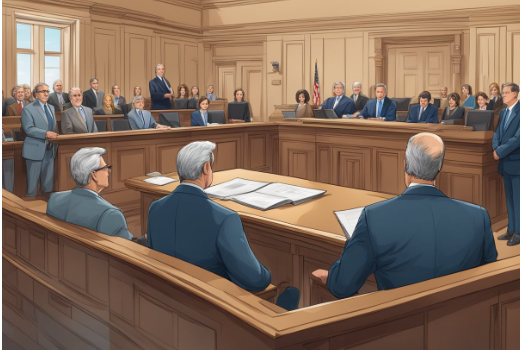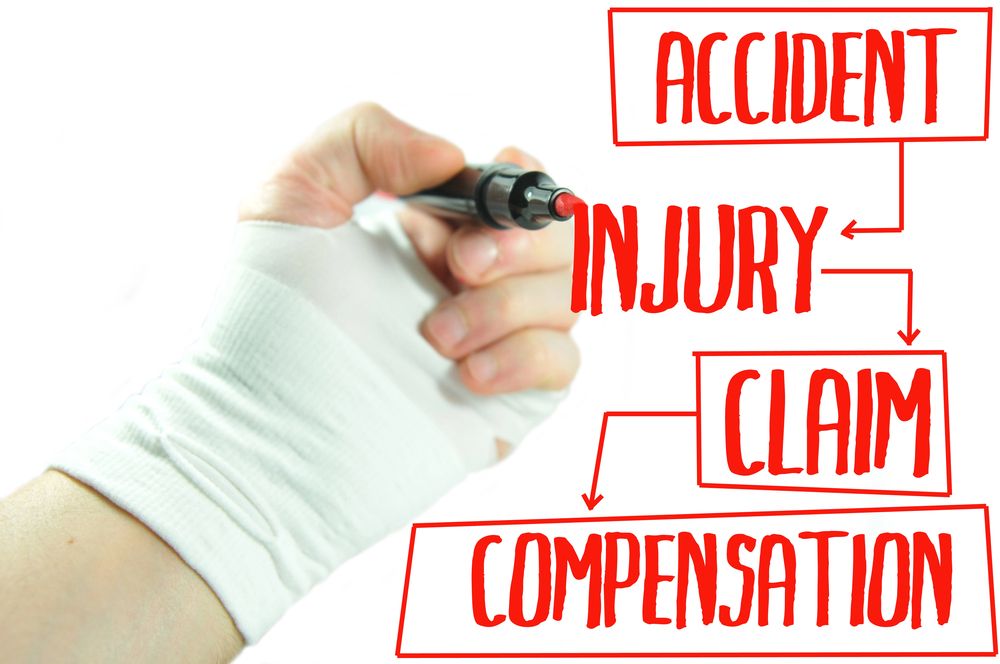How to Hire the Right Personal Injury Lawyer for Your Case: Tips and Considerations

Choosing the right personal injury lawyer can make all the difference in your personal injury case.
To find the best fit, start by looking for a lawyer experienced in the specific type of personal injury law that your case involves. This could range from car accidents to medical malpractice or workplace injuries.
You'll want someone who not only has the skills but also understands your needs.
Check their track record of success with cases similar to yours. Reviews from previous clients can give you insight into how they handle their cases and communicate with clients like you.
Costs are another factor to consider. Most personal injury lawyers work on a contingency fee basis, which means they get paid only if you win. This can lessen your stress about upfront costs.
Remember, the right lawyer will help guide you through the legal process, aiming to get the best results for your case.
Understanding Personal Injury Law
Personal injury law helps you seek compensation if you are harmed due to someone else's actions. You may hear terms like negligence, intentional torts, or statute of limitations. Cases can involve dog bites, slip-and-falls, or product liability.
Knowing the basics helps you decide what's best for your case.
Key Concepts in Personal Injury Law
In personal injury law, negligence is a key concept. It occurs when someone fails to act with care, causing harm.
To file a claim, you must show they had a duty, didn’t fulfill it, and you were harmed.
Intentional torts are different. They happen when someone intentionally causes harm. If someone hits you on purpose, it falls under this category.
The statute of limitations sets a time limit to file a claim. Missing this can prevent you from getting compensation. This time varies by state, so check your local laws.
Types of Personal Injury Cases
Personal injury cases come in many forms.
Slip-and-fall cases occur when unsafe conditions, like a wet floor, cause injury. Dog bites are another type, where the owner could be liable if their pet attacks.
Product liability cases involve injuries from defective products. Manufacturers might be responsible if their product was faulty and harmed you.
Each type requires evidence that the other party was at fault. Knowing these can help you identify what type of case you might have and what steps to take next.

Selecting a Personal Injury Lawyer
Choosing the right personal injury lawyer involves careful consideration of several factors. It's essential to look for experience, specialization, and understanding of fee structures.
Criteria for Choosing the Right Lawyer
When selecting an injury lawyer, consider their reputation and past client reviews. These can provide insights into how effectively they communicate and handle cases.
Location: A local lawyer will understand regional laws better.
Accessibility: Ensure they are available for regular updates and consultations.
It's important to meet with a few lawyers during the initial consultation.
Ask questions about their approach and willingness to take your case to trial if needed.
The Role of Experience and Specialization
An experienced personal injury lawyer can navigate the complexities of your case efficiently. Specialization in personal injury law ensures they are familiar with typical challenges and legal strategies.
Consider a lawyer's track record in your type of injury case. Experience in motorcycle accidents, slip and falls, or medical malpractice can be beneficial.
Having a specialized lawyer means you are more likely to have a strong advocate who understands the specifics of your case.
Understanding the Contingency Fee
Most personal injury lawyers work on a contingency fee agreement. This means they only get paid if you win your case. Typically, this fee is a percentage of your settlement or court award.
Discuss the fee percentage during your initial meeting. Knowing whether you’ll be responsible for any costs if you lose is crucial.
This fee structure allows you access to legal services without upfront payment, making it easier to seek justice without financial strain.
Navigating Your Personal Injury Case
Handling a personal injury case can feel challenging. Knowing the right steps and what to expect helps you navigate through the process more effectively.
Key factors include starting with the right actions post-injury, understanding the lawsuit stages, and deciding between settling or going to trial.
Initial Steps after an Injury
Acting promptly after an injury is crucial.
First, seek medical care for any injuries, no matter how minor they seem. This ensures your health and documents the extent of your injuries.
Next, gather evidence from the accident scene.
Take photos, collect witness names and contact details, and get a copy of the police report if available.
You should then consider consulting with a personal injury attorney. They can provide legal advice tailored to your situation.
An attorney helps in understanding your legal claim and the steps ahead. Make sure to keep records of all related expenses, including medical bills and repair costs, as these support your claim for monetary damages.
The Lawsuit Filing Process
When you're ready to proceed, the filing of a personal injury lawsuit involves several steps.
Your attorney will prepare and file a complaint, stating your legal claim and the damages sought. This document is crucial as it outlines your case to the court.
After the complaint is filed, a summons is issued to notify the defendant.
Both sides will then engage in a period called discovery.
Evidence is exchanged, and both parties learn more about the case. This can include depositions and document requests.
Understanding these steps is vital as they form the backbone of your case’s progression. Each stage requires careful preparation to ensure a solid presentation in court.
Settlement vs. Trial
Deciding between settling or going to trial is significant.
A settlement is an agreement outside of court, often resulting in faster compensation. It can save time and reduce stress.
Discuss with your attorney to weigh the offer against potential court awards.
A trial may lead to higher monetary damages but involves more time and costs.
Trials bring uncertainties, and there is a risk of losing, which means no compensation.
Evaluating the strengths of your case helps in making this decision.
Consider facts, evidence, and potential outcomes closely. Your attorney's experience and advice will guide you in choosing the best option for your situation.
Get Your Just Compensation
Getting the most from your personal injury claim involves several steps.
You will need to know how to interact with insurance companies effectively, calculate your damages accurately, and gather strong medical evidence. Each of these plays an important role.
Dealing with Insurance Companies
When you file a claim, dealing with insurance companies is a key step.
Insurance companies often aim to pay out as little as possible.
Being prepared can help you get fair compensation.
Document everything from the accident, like photos and notes. Communicate clearly and keep records of all conversations.
Avoid accepting the first offer. The initial offer may not cover all your expenses.
Negotiation is important.
Consider enlisting the help of a lawyer who can help you navigate complex paperwork and argue for a higher payment.
Calculating Damages and Compensation
Understanding how to calculate damages is critical.
Damages can include both economic and non-economic losses.
Economic damages are expenses like medical bills, lost wages, or property damage. Non-economic damages might include pain and suffering or emotional distress.
Use a table or list to determine your losses. Ensure your account for all medical care and any income loss you have faced.
Estimating potential future costs is also vital, especially in cases of medical malpractice or serious injuries.
The Role of Medical Evidence
Strong medical evidence can significantly affect the outcome of your claim.
Keeping detailed records of all medical treatments is essential. This includes doctors' notes, prescriptions, and therapy records.
Consistent documentation helps demonstrate the extent of your injuries.
If you have missed work due to the injury, that should be noted.
Medical evidence not only supports your injury claim but also emphasizes the need for fair compensation.
Make sure to follow medical advice and attend all appointments. This shows you are committed to your recovery and can make your claim more credible.
Frequently Asked Questions
Choosing the right personal injury attorney requires attention to several factors while filing a lawsuit involves specific steps. Knowing your case value and avoiding common mistakes are key. The duration to resolve a case can vary. Important evidence also plays a crucial role.
What factors should be considered when selecting a personal injury attorney?
Look for experience in personal injury law and a good track record with similar cases. Check for clear communication skills and available resources.
Consider client reviews and testimonials to gauge past success. An attorney should work on a contingency fee basis, meaning you pay only if you win the case.
How can I determine the value of my personal injury case?
The value depends on factors like medical expenses, lost wages, and pain and suffering.
The severity of your injuries and long-term effects are crucial. Your attorney will help estimate a fair compensation range based on similar past cases and evidence.
What are common mistakes to avoid during a personal injury claim process?
Avoid giving recorded statements without attorney advice. Do not settle too soon before knowing the full extent of injuries.
It's crucial to retain all evidence and documents. Failing to seek immediate medical attention can also weaken your case.
What types of evidence are crucial in supporting a personal injury claim?
Key evidence includes medical records, accident reports, and witness statements. Photos and videos of the accident scene and injuries are important. Documentation of lost wages and expenses strengthens your claim.










